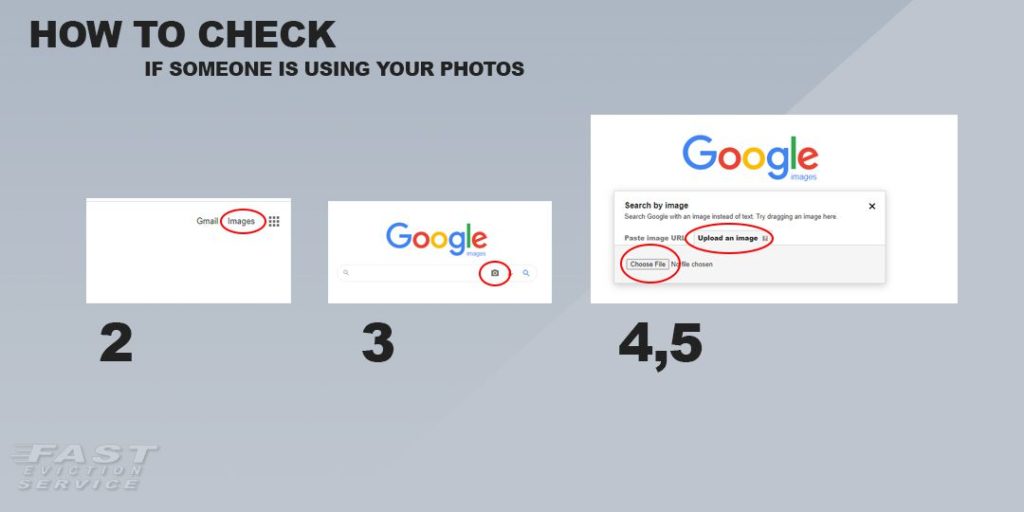Updated 8/21/24
There are a lot of great benefits of being a landlord. With the great also comes the bad, however, and a downside of being a landlord in California is constantly having to keep up to date with ways tenants are scamming landlords. Luckily, there are many tools and tips available to avoid becoming another statistics of the tricks tenants try to pull.
Professional tenant scammers come from all over the country and try many new tricks to see which one sticks. Here are the most popular ways tenants are scamming landlords today.

The Phony HR Department Scam
The rental application step when renting to a new tenant is where you are most likely to see how tenants try to scam landlords. Even the littlest lie is still a scam attempt. While there are many things to watch out for (which we will list at the end of this article), the “phony HR department” is a tactic that has been tried for years.
How it works
The tenant will write down current and past employer information which will satisfy your listings’ criteria. This can include salary, job length etc. They will usually provide a name and phone number for an HR department to correlate their information. When you go to verify this information, you will most likely be calling a friend of theirs who is willing to talk nothing but wonderful things about your prospective tenant.
How to avoid falling for this scam
In almost all cases, you can find basic contact information for a legitimate business online. You can Google their place of employment and use that contact info to call and verify their provided information. If they have never heard of this person, give you different information or negative feedback, you can use this to make an accurate decision.
Other ways of making sure you don’t fall for this scam (and another great way to verify income) is to ask for copies (and originals) of paycheck stubs, W2 tax return information and bank statements.
When calling to their employer to ask for references, make sure you ask to speak to their immediate boss if possible. This will give you a better character reference than an HR representative who only knows this employee by a number!
The Phony Previous Landlord Scam
This scam works in the same way that the phony HR scam works, except with previous landlords.
How it works
The tenant will provide contact information for his previous landlords. The reality is, you’re really calling friends and family of your prospective tenant who are willing participants in the rental scam.
How to avoid falling for this scam
This one is a bit tricky since it’s a little more difficult to find personal contact information for individual and small time landlords. If it is a bigger property management company or apartment building with an office, this method of verifying will be a little bit easier.
You can also try physically visiting the previous address. Doing so will verify that in deed this address is a place available to rent and you can often get lucky and find a “for rent” sign with landlord contact information.
Catfish Scam – Stealing Your Ads
In 2018, over 5 million people were victims of rental scams. This includes “landlords” scamming prospective tenants and tenants scamming landlords. Some scam methods include
- Bait-and-switch: An unsuspecting lease signee and new tenant signs a lease and when they show up to move in to their home they thought they rented, another completely different home is presented.
- Phantom Rental: A scammer makes up a rental listing and tries to attract prospects into sending deposits with low prices.
- Missing Amenities: “landlords” and “agents” try to get tenants to sign a lease to a rental with missing promised amenities without them noticing.
Among the more popular choices for scammers is the “hijacked” method.
How it works
This method consists in a scammer stealing/copying your online ad and pasting it on other popular digital markets where you can easily find rentals, except with their contact information instead of yours. They usually set the rental price extremely low to lure unsuspecting prospects into sending deposits to “hold” the rental or charging for application fees.
How to avoid falling for this scam
This method doesn’t directly affect you directly as a victim of the fraud per say, but it can stain your reputation. A quick way to check for this scam is to constantly search for your property on all major platforms and Google.
Another idea is to do reverse image lookup on Google to check if anyone is using your photos for “catfish” type schemes.
- Go to google.com.
- Click on “Images” on the top right.
- Next, click on the camera icon within the search bar.
- Switch to the tab that says “Upload an image”.
- Upload an image of your rental property
What Google will do is search the interwebs and show you where your image can be found on the internet. If you see it is being used on a platform you didn’t post the ad on, you can flag or report the fraudulent use of your image.

Moving in Town for a Job Scam
This might be the one that will frustrate you the most if you fall and make you laugh the most once you get the hang of weeding them out. A popular among tenants scamming landlords today.
How it works
A prospective tenant will call you or email you asking you all the details about your rental property. They will then explain that their company will mail you a check for your rental property, sight unseen. The scammer usually makes an insane offer such as paying you 6 months up front but they only need 3 months and you can keep the balance. The scam here is they usually try to get you to deposit one month’s rent into their account. So “the company” will pay you with a business check (that is bogus), you get to keep 5 month’s rent if you do them a solid. Sounds easy, right?
If you fall for this trick, you will be depositing a month’s amount of real money and receiving nothing but smoke since the check they mail you is fake.
How to avoid falling for this scam
There is no reason to ever accept more money than what your rental is being offered at. Always meet your tenant face to face and run all applicants through a thorough screening process. If you sense an abnormal “urgency” from the prospect, trust your gut and shy away from them.
Never accept an out of state cashier’s or regular check especially if it is for more than the specified amount. Send it back immediately and carry on.
Illegal Subletting
Otherwise known as the Tenant Landlord Scam. Once you’ve rented your place and a tenant has signed a lease, make sure you periodically check up on the place. There are two ways tenants are scamming landlords with this tactic.
How it works
1. The first way tenants can use this tactic to scam a landlord is by quickly putting your own property up for rent again once they get ahold of the keys! Often times using the same ad that brought them to you in the first place! They usually post it for way below market value and try to get someone else in as soon as possible.
They keep the cash security deposit, first months’ rent and take off. You then start wondering why your tenant hasn’t paid their next month’s rent. After many attempts to contact them, you show up at the door and see someone you have never met before. What a nightmare!
2. The other way this scam works is generally using the same technique. A scamming tenant passes off as landlord and charges a little more on monthly rent. They keep paying you the agreed upon rent until the landlord catches on usually months down the road.
How to avoid falling for this scam
The easiest way is to avoid falling for this scam is to always meet the person you’re renting to and constantly check up on your rental property! Never allow a tenant to move in without paying you a security deposit and first months’ rent.
It’s also a good idea to run searches on your rental properties every now and then to see if anyone is using your listing information to scam others.
Other tips to avoid tenants scamming landlords
- Always run a simple search on all applicants and all of the info they provide on the rental application. You never know what kind of stuff is online!
- Never skip a background check and consumer credit report. No matter what their story is or how much they offer up front!
- Use personal references and check in with those individuals.
We can never be 100% sure we won’t ever fall for a scam. We hope, however, that you can at least prepare yourself for some of the most popular ways tenants are scamming landlords today. Have you fallen for another type of scam not listed here? We’d love to hear your story! Share it with us on twitter!




